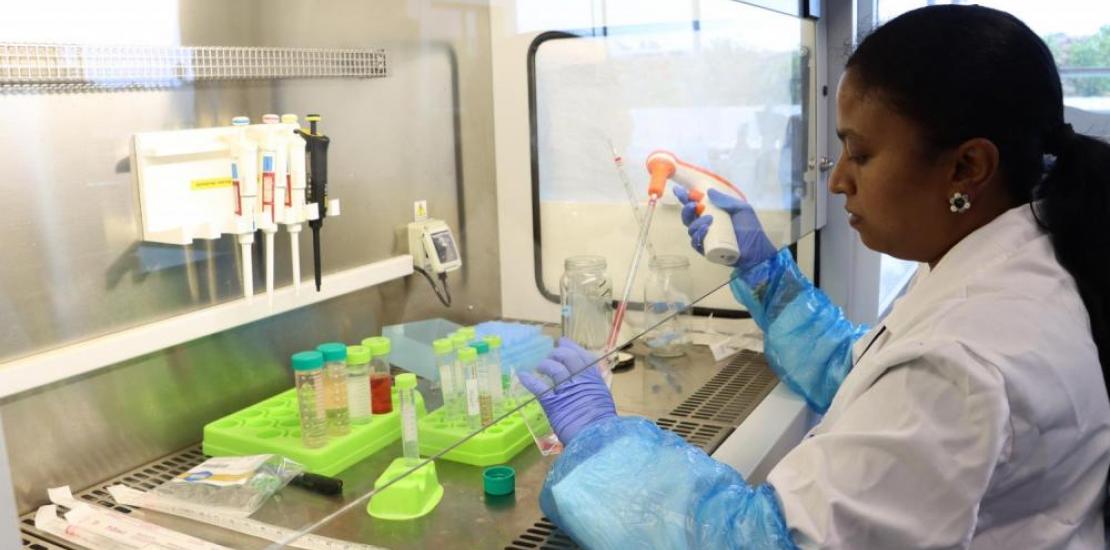A synthetic collagen is opening up new paths towards regenerative medicine
UCAM researcher Lakshmi Jeevithan collaborates with scientists from China to analyse its effect on tissue regeneration and repair.
Lakshmi Jeevithan, researcher of the Materials and Tissue Engineering Research Group, led by UCAM Lecturer José Eduardo Maté Sánchez de Val, has participated in a study, published in the Journal of Functional Biomaterials, conducted at international level to analyse the effects of a new recombinant collagen on skin regeneration. The research was developed in collaboration with Professor Wenhui Wu, from the Shanghai Ocean University, the Zhoushan International Combined Research Centre for Marine Biological Sciences and the Marine Biomedical Science and Technology Innovation Platform of the Lin-Gang Special Area. It focuses on evaluating the effectiveness of this biomaterial as an alternative to animal-derived collagens in clinical applications.
‘The collagen used in this study was obtained using genetic engineering techniques, allowing the production of a synthetic version that is highly compatible with human tissues. Unlike traditional collagen, which is usually extracted from animal sources, this recombinant collagen is generated in the laboratory from microorganisms genetically modified to synthesise human proteins, thus reducing the risk of allergies or adverse reactions,' said researcher Lakshmi Jeevithan.
The results of the study show that this collagen stimulates the production of proteins essential for skin repair and strengthens the basement membrane, a key structure that provides support and organisation to skin tissues. Through laboratory tests with skin cells and animal experiments, this team of scientists has found that this biomaterial significantly improves wound healing, skin elasticity and tissue regeneration.




